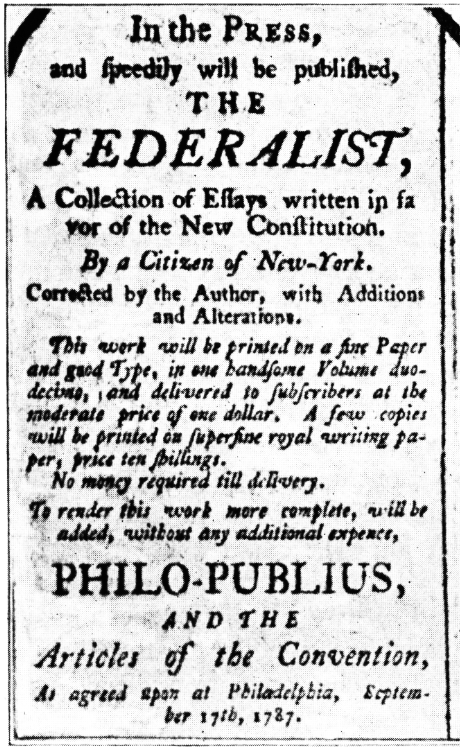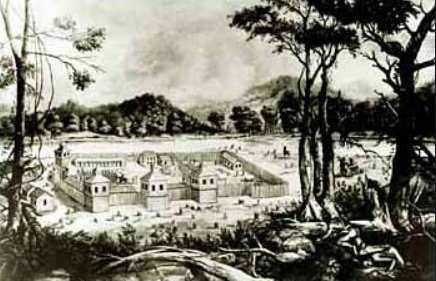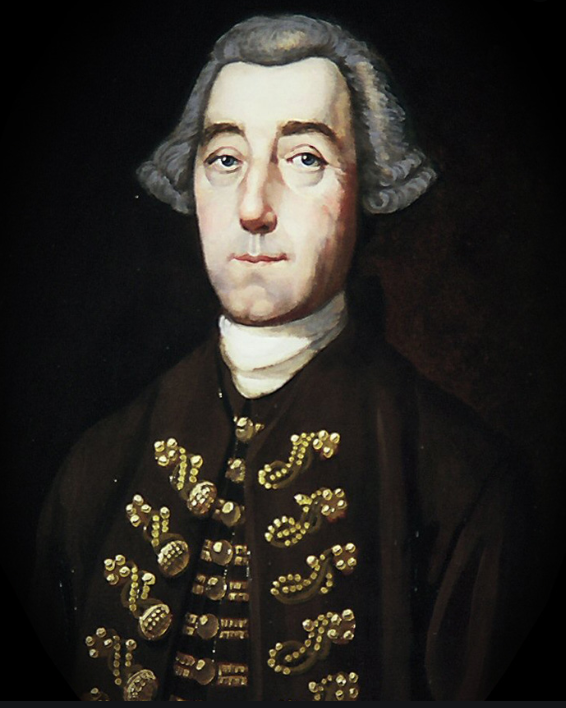Unconsolidated Wealth - Federalist #60
Federalist #60 was written by Alexander Hamilton as an attempt to halt fears regarding the Federal Government’s control of certain elections.
Federalist #60
February 23, 1788
Alexander Hamilton
In Federalist #60, Alexander Hamilton discusses the Anti-Federalist criticism that control of elections to the House of Representatives was left in the hands of the Federal Government.
The fear was that public figures could take control of the Government by strategically locating voting places in hard to reach locations, specifically in areas predominantly occupied by wealthy people.
Hamilton counters this idea on two fronts: this mix of population and separation of powers.
Location
During the late 18th century, wealthy people lived among the poor.
This was actually true through most of American history, until modern forms of transportation allowed people to work in major cities by day and far away at night.
Because of this, setting up elections in inconvenient locations would be just as much of a hassle on the wealthy as it would for the poor.
Separation of Powers
Hamilton also falls back on an old Federalist Papers favorite...the separation of powers.
Since the President, House and Senate all had different responsibilities, it would be next to impossible for them to work together to conspire against the people.
Furthermore, as the Senate was chosen by the State Legislatures, they could control the Federal Government from taking advantage of the people (though this would change when the 17th Amendment change the choice of Senators from appointment to election).
After 22 consecutive Federalist Papers written by James Madison, Alexander Hamilton returns for #59.
Hamilton picks up where Madison left off, with a topic concerning the election of Delegates to the House of Representatives.
Federalist #59
Alexander Hamilton
Federalist 22, 1788
In Federalist #59, Alexander Hamilton responds to criticism that the Federal Government controlled elections to the House of Representatives.
The Anti-Federalists believed that this would give the Government the ability to stall elections and present Representatives from being chosen.
Federalists believed this was a necessary compromise.
Shared Power
Hamilton insists in this Paper that the federal part of the new Government relied on the State and National Governments sharing power.
He points out that the States are responsible for the election of Senators, balancing out the means by which elections are established.
Furthermore, elections to the House were so infrequent, that attempts to prevent them would initiate trouble from the Senate who, again, were chosen by the States.
17th Amendment
Interestingly, Hamilton’s argument is no longer quite so appropriate.
The 17th Amendment was ratified in 1913 and changed control of the Senate from the State Governments to the State voters.
The decisions on elections, however, are still controlled by the States themselves.
I publish Federalist summaries every Friday.
If you’ve missed on, you can catch up here.
I’ve recently opened a shop that feature some of my favorite FOUNDERS QUOTES.
Check them out through the link below:






